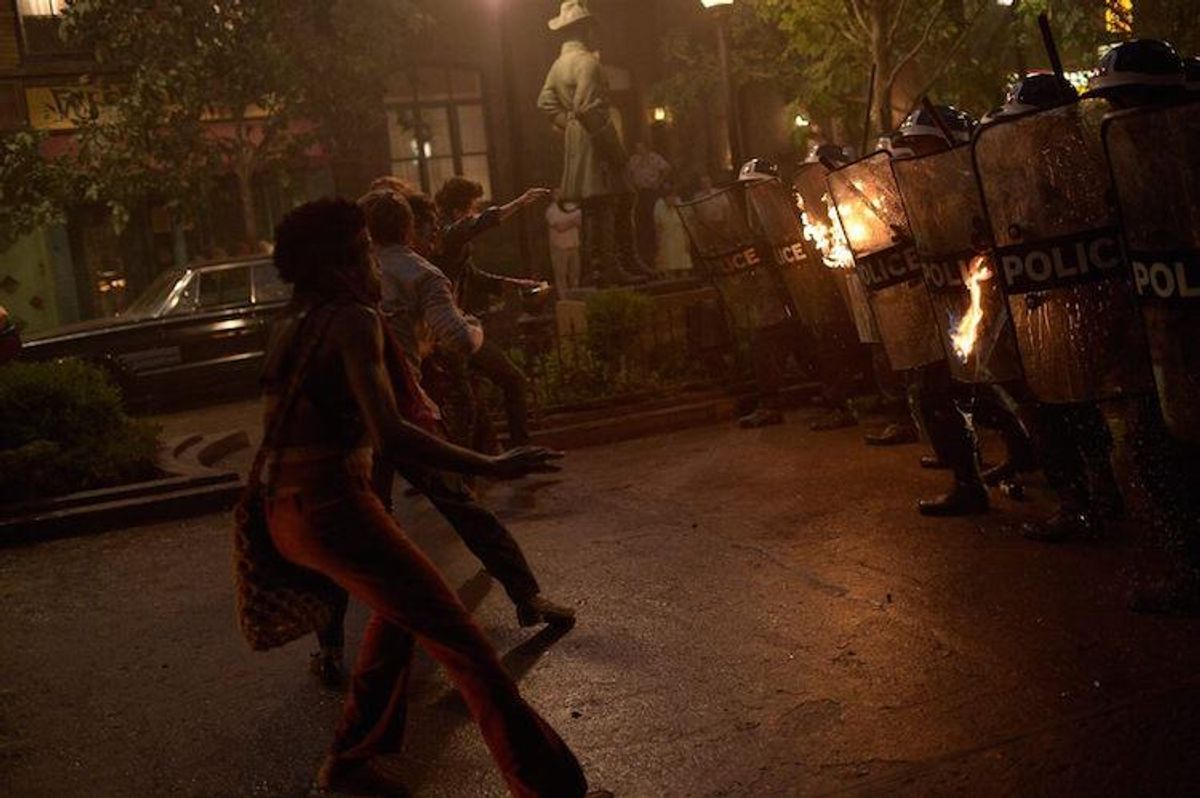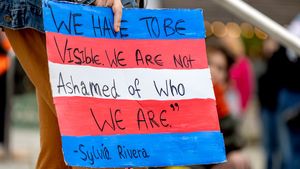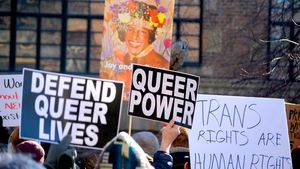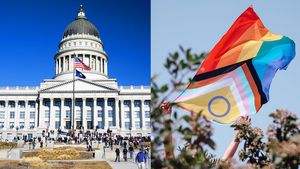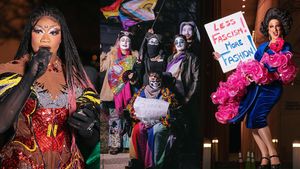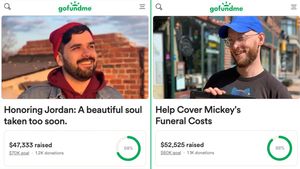As we put this issue of
The Advocate to bed (issue 1081, October/November 2015),
the trailer for Stonewall was released, and comments and headlines flew around the Web accusing director Roland Emmerich of whitewashing and trans erasure. None of the detractors, at this stage, had seen the film. The film might be great and all-inclusive and true. Or it might not. But at that moment, all of us who decried the content of the film were literally, by definition, prejudiced. We were raving on about a one-minute-long marketing tool, and a marketing tool bedeviling to filmmakers who don't make them.
Soon enough we'll know more about what's actually in the film. In the meantime, the uproar is instructive. Here we have the confluence of two conditions that primed us for protest: the legendary importance of the riots, and the mechanisms of hair-trigger social-media-fueled outrage.
It was especially bad timing that the
Stonewall trailer came out the very day that USC's Annenberg School
put out a study that delineated the overwhelming predominance of white, straight men in film roles. With hashtags, pitchforks, and boycott petitions at the ready, we leapt in. We're all now primed to lash out at injustice, inspired at least in part by the very anger that led to the Stonewall riots. Such anger can be very useful if properly deployed, but as I write this, none of us can say with certainty if the "How dare you, Roland Emmerich?" comments are a warranted or good or useful deployment of anger.
In David Carter's book Stonewall: The Riots That Sparked the Gay Revolution (just one of many accounts, some conflicting), he describes the atmosphere that night. The patrons of the bar had been put through a series of recent raids, and they were at a breaking point when the police raided just after 1 a.m. on Saturday, June 28, 1969.
Drag queens had been subject to humiliation in repeated raids, ushered over to policewomen for "examination" until they were forced to acknowledge, "All right, honey, I'm a man." That night, they were not complying with orders to congregate in the bathroom. One drag queen hit a cop with her purse when being led outside, and she was beaten with a baton. A tall, butch lesbian resisted police and fought with cops for several minutes; as she was forced into a police car, she cried out for help from the already-evicted gay men gathered outside. Her pleas were the flashpoint for rioting.
Actual photos of the nights of rioting are scarce. (One of the few images is on page 61 and shows homeless "street kids" who slept in Christopher Park nearby, and who found a refuge at the Stonewall Inn, being pushed back by police.) And testimonials vary: Who, among the queer people living in New York then, wouldn't want to claim they'd been there that very night?
But so many of us were represented there those nights: gay men, lesbians, gender non-conforming people, black, Latino, white, the well-heeled, the homeless. We can all be proud of the Stonewall riots. And in the 47 swirling, heady years since then, Stonewall has become the mythic, Arthurian stone from which each of our communities is pulling a sword--proof of our claim to a heritage that includes that transformative night. But there is room for all of us to claim it.
No single movie nor any one book can completely tell the story of the riots. But by preemptively decrying a movie without a firm basis for doing so, do we risk an outcome in which fewer--not more--movies about LGBT history are made? I know that's not the primary issue here. We will speak our truths, and the consequences will flow.
But if Stonewall sucks, let's make another, and another. Whose permission do we need?
Matthew Breen is editor-in-chief of The Advocate
and deputy editor of Out
. He tweets at @matbreen. 